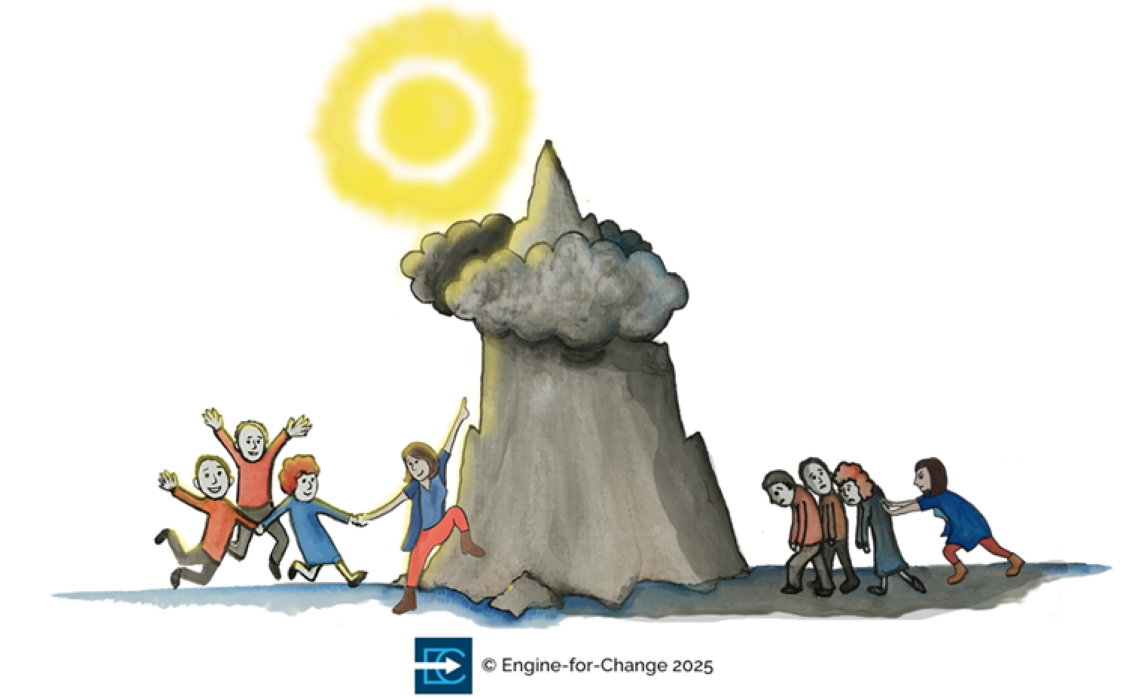Embracing Change: The Human Experience and the Path to Curiosity
Change is an inevitable part of life, yet it often feels like an impossible mountain to climb. Whether in our personal or professional lives, the struggle with change is universal. Why do we find ourselves resisting transformations that promise growth and improvement? Understanding the psychological foundations of this resistance can help us navigate change more effectively and spark curiosity about our reactions during these times.
The Human Experience of Change
At its core, change disrupts our sense of stability and predictability. As humans, we are creatures of habit; our brains are wired to seek comfort in routine. When faced with change, we encounter a flood of emotions—fear, uncertainty, and anxiety. These feelings are natural reactions, rooted in our evolutionary past, where unpredictability often equated to danger triggers our internal fight or flight response.
In the workplace, organizations regularly initiate changes, such as new software systems or shifts in company culture. Employees may grapple with feelings of inadequacy or fear of the unknown, leading to resistance. For instance, when a company transitions to a digital platform, employees might feel overwhelmed by the learning curve, fearing they will not adapt quickly enough to meet performance expectations. This anxiety can manifest as passive resistance, negatively impacting morale and productivity.
The Power of Curiosity during Change
In times of transformation, cultivating curiosity about ourselves can be a valuable tool for navigating the emotional landscape. Instead of focusing solely on the fear of change, we can ask ourselves: What is it about this change that triggers my anxiety? What underlying values and beliefs are being challenged?
Consider a manager leading a team through significant organizational change. Instead of viewing resistance as a personal affront, they can reflect: “What might my team members be feeling? How can I create a space for open dialogue?” This shift in perspective fosters empathy and encourages a collective exploration of the change, leading to a more engaged and less resistant team.
Let’s look at two organizational contexts: a tech firm implementing a new digital tool and a healthcare organization restructuring its teams. In both cases, the key to successful transformation lies in fostering a culture of curiosity.
1. Tech Firm’s Digital Transformation: When a tech company introduced a new project management tool, they faced significant pushback from employees accustomed to existing processes. Instead of mandating the change, the leadership team hosted workshops where employees could express their concerns and share their experiences. This approach uncovered valuable insights, allowing employees to experiment with the new tool in a supportive environment. By encouraging curiosity, the firm eased the transition and empowered employees to take ownership of the new system.
2. Healthcare Organization’s Team Restructuring: When a hospital decided to reorganize its departments for better patient care, staff were understandably anxious about their new roles. Leadership initiated “curiosity sessions” where employees could explore what the changes meant for them personally and professionally. By facilitating discussions around fears, expectations, and aspirations, the organization fostered a sense of belonging and cooperation. Employees became curious about how their contributions could shape the new structure, ultimately leading to a smoother transition.
Considerations for Driving Human-Centered Transformations
As you navigate change within your organization, consider the following strategies to foster a human-centered approach:
1. Create Safe Spaces for Dialogue: Encourage open communication where employees can express their concerns and curiosities. This builds trust and helps leaders understand the emotional landscape.
2. Encourage Reflective Practices: Promote self-reflection among team members. Tools like journaling or group discussions can help individuals articulate their feelings and gain insights into their resistance.
3. Emphasize Continuous Learning: Frame change as an opportunity for growth. Offer training not just on new technologies but also on skills like resilience and adaptability.
4. Celebrate Small Wins: Acknowledge and celebrate progress, no matter how small. This reinforces positive behaviors and encourages a culture of curiosity and exploration.
5. Lead by Example: As a leader, showcase your curiosity and willingness to embrace change. Share your experiences, fears, and learning moments to humanize the process.
Change is challenging, but it also presents an opportunity for growth and self-discovery. By fostering curiosity within ourselves and our organizations, we can transform resistance into engagement and fear into exploration. The next time you face change, reflect not just on the external shifts but on your internal responses. What can you learn about yourself? How can you leverage that understanding to navigate your journey and guide others through theirs? In doing so, we not only embrace change—we thrive in it.







